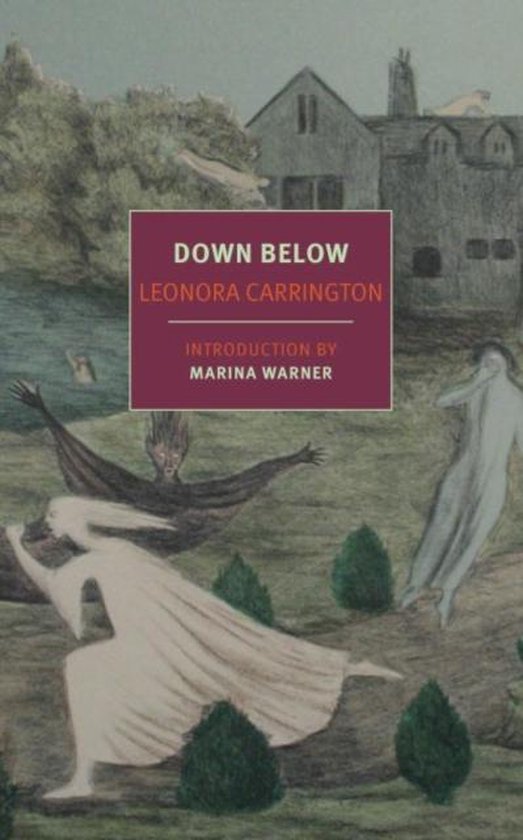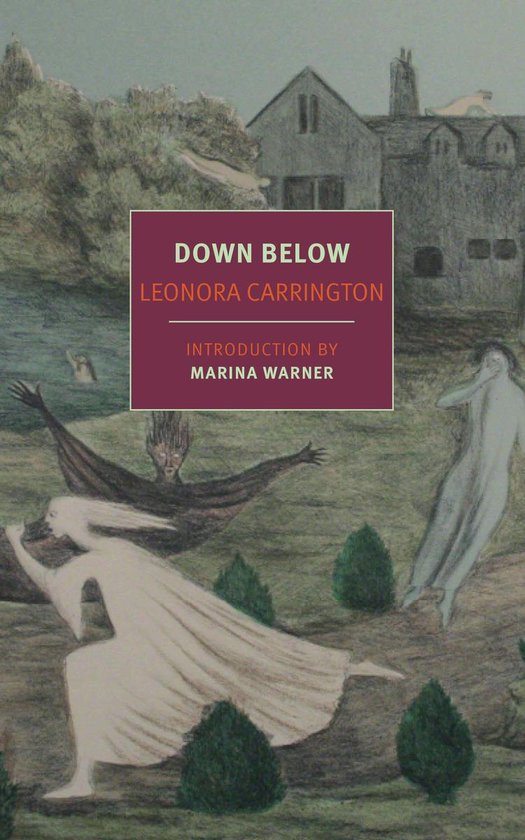Rbizo.com
Down below

Rubriek: Textual/Printed/Reference Materials - Boek
Prijs: € 10.04
Rating: 0/5
☆
☆
☆
☆
☆
Verzending:
Op voorraad. Voor 23:59 besteld, morgen in huis
Op voorraad. Voor 23:59 besteld, morgen in huis
Inhoudsopgave:
Omschrijving:
A stunning work of memoir and an unforgettable depiction of the brilliance and madness by one of Surrealism's most compelling figures
In 1937 Leonora Carringtonlater to become one of the twentieth centurys great painters of the weird, the alarming, and the wildwas a nineteen-year-old art student in London, beautiful and unapologetically rebellious. At a dinner party, she met the artist Max Ernst. The two fell in love and soon departed to live and paint together in a farmhouse in Provence.
In 1940, the invading German army arrested Ernst and sent him to a concentration camp. Carrington suffered a psychotic break. She wept for hours. Her stomach became the mirror of the earthof all worlds in a hostile universeand she tried to purify the evil by compulsively vomiting. As the Germans neared the south of France, a friend persuaded Carrington to flee to Spain. Facing the approach of robots, of thoughtless, fleshless beings, she packed a suitcase that bore on a brass plate the word Revelation.
This was only the beginning of a journey into madness that was to end with Carrington confined in a mental institution, overwhelmed not only by her own terrible imaginings but by her doctors sadistic course of treatment. In Down Below she describes her ordealin which the agonizing and the marvelous were equally combinedwith a startling, almost impersonal precision and without a trace of self-pity. Like Daniel Paul Schrebers Memoirs of My Nervous Illness, Down Below brings the hallucinatory logic of madness home.
- Bekijk alle specificaties
Beste alternatieven voor u.

The Milk of Dreams
Rating: 5 / 5 | Prijs: € 12.99
In english for the first time a wild and darkly funny book that combines surrealist painter leonora carringon s fantastical writing and illustrations for childrenthe maverick surrealist leonora carrington was an extraordinary painter and storyteller who loved to make up stories and draw pictures fo
Uiterlijk 1 februari in huis .. MEER INFO

NYRB Classics - Down Below
Rating: 0 / 5 | Prijs: € 7.99
A stunning work of memoir and an unforgettable depiction of the brilliance and madness by one of surrealism s most compelling figures in 1937 leonora carrington later to become one of the twentieth century s great painters of the weird the alarming and the wild was a nineteen year old art st
Direct beschikbaar .. MEER INFO

PMC Hearing Trumpet
Rating: 5 / 5 | Prijs: € 20
One of the first things ninety two year old marian leatherby overhears when she is given an ornate hearing trumpet is her family plotting to commit her to an institution soon she finds herself trapped in a sinister retirement home where the elderly must inhabit buildings shaped like igloos and bi
Uiterlijk 6 februari in huis .. MEER INFO
Product specificaties:
Taal: en
Bindwijze: Paperback
Oorspronkelijke releasedatum: 18 april 2017
Aantal pagina's: 69
Illustraties: Nee
Hoofdauteur: Leonora Carrington
Tweede Auteur: Marina Warner
Hoofduitgeverij: New York Review Of Books
Editie: Main
Extra groot lettertype: Nee
Product breedte: 130 mm
Product hoogte: 8 mm
Product lengte: 203 mm
Studieboek: Nee
Verpakking breedte: 127 mm
Verpakking hoogte: 11 mm
Verpakking lengte: 198 mm
Verpakkingsgewicht: 230 g
EAN: 9781681370606